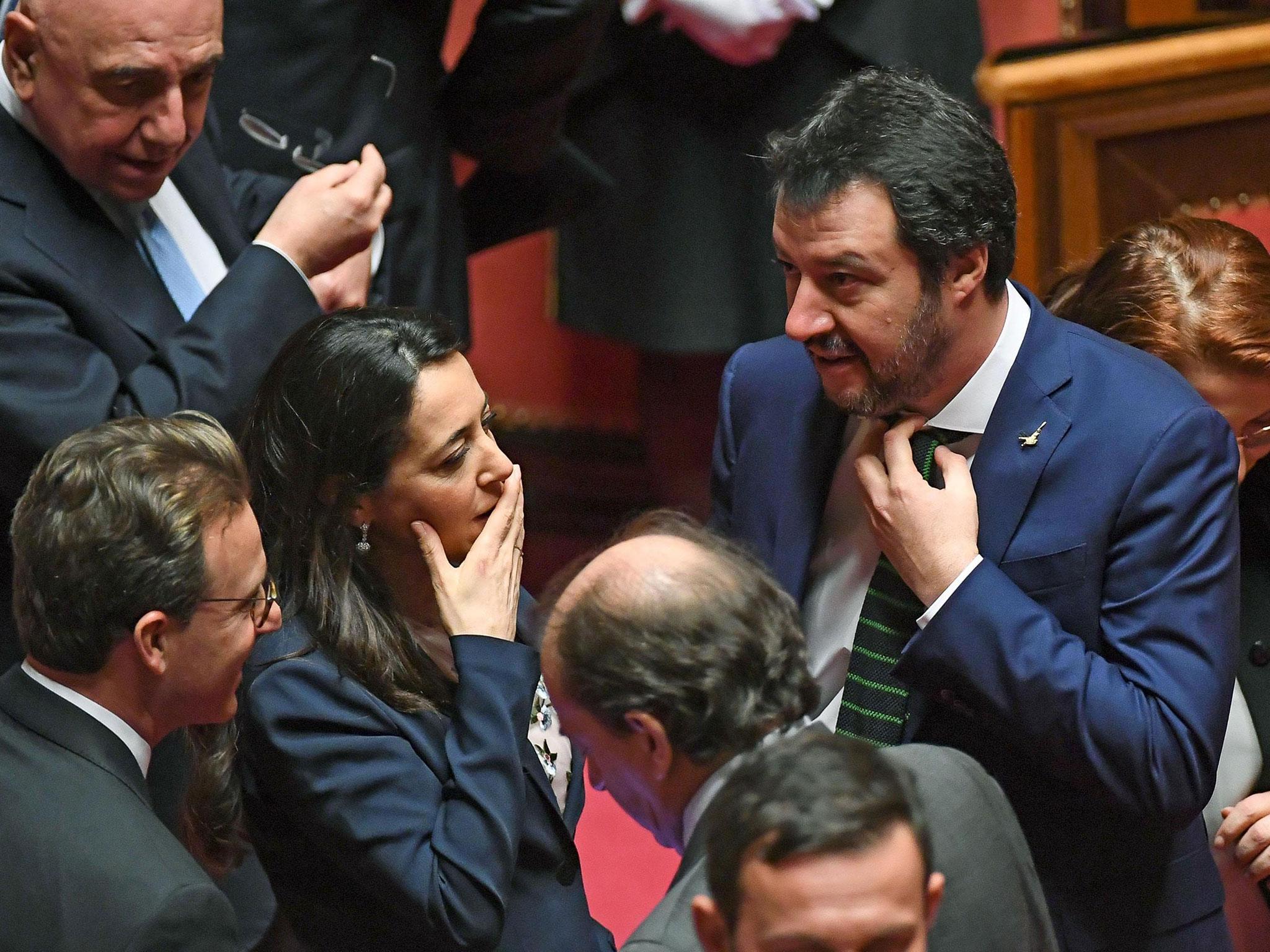Italy fails to even elect speakers on first day of Parliament in bad omen for government talks
An alliance between the far-right League and populist 5 Star Movement appeared to be in the offing – until Silvio Berlusconi stepped in

Your support helps us to tell the story
From reproductive rights to climate change to Big Tech, The Independent is on the ground when the story is developing. Whether it's investigating the financials of Elon Musk's pro-Trump PAC or producing our latest documentary, 'The A Word', which shines a light on the American women fighting for reproductive rights, we know how important it is to parse out the facts from the messaging.
At such a critical moment in US history, we need reporters on the ground. Your donation allows us to keep sending journalists to speak to both sides of the story.
The Independent is trusted by Americans across the entire political spectrum. And unlike many other quality news outlets, we choose not to lock Americans out of our reporting and analysis with paywalls. We believe quality journalism should be available to everyone, paid for by those who can afford it.
Your support makes all the difference.The newly-elected Italian Parliament sat for the first time on Friday but – if the start of proceedings is anything to go by – the country faces a prolonged period of chaos and political deadlock.
Parliament’s first task is to elect two speakers, one each for the lower and upper houses. But warring parties from the election earlier this month appear to have failed what was seen as a test of the country’s ability to form a viable government in the coming weeks.
The 4 March vote gave no clear majority to any political party or coalition, but there was talk of an alliance forming between the two populist leaders who took the most votes.
Matteo Salvini is the leader of the eurosceptic, anti-immigrant Northern League, itself the frontrunner from within a right-wing coalition that collectively reached 37 per cent in the election. Mr Salvini aspires to be Prime Minister and thereby the most powerful far-right leader in Europe, but he has to deal with resistance from both his own allies – Silvio Berlusconi’s Forza Italia – and with Luigi Di Maio, leader of the populist 5 Star Movement (M5S), the most voted-for individual party with 32 per cent.
The head of state, President Sergio Mattarella, won’t start government consultations until the two speakers are elected. But if Friday’s first vote was a thermometer for alliances, then the hunt for an agreement seems to have gone very cold indeed.
At first, Mr Di Maio and Mr Salvini tried to put in place a pact concerning the two candidates to be elected, with M5S leading the Chamber of Deputies and the right-wing coalition choosing the speaker of the Senate.
Such an agreement would have been a starting point to move on to discussions about forming a government too. But then Mr Berlusconi – whose Forza Italia gained a disappointing 13 per cent compared with Northern League’s 17 per cent – broke up the team.
Mr Berlusconi’s manoeuvre was to ask M5S to start a dialogue with Forza Italia instead. Inevitably, this provoked the opposite reaction, with the idea of any dealings with convicted fraudster Mr Berlusconi provoking outrage among the “Grillini”, M5S supporters named after the party’s founder Beppe Grillo.
Mr Di Maio’s movement attracted lots of support from former left-wing voters who felt betrayed by the Democratic Party, the clear loser in the election, in which the left suffered its worst-ever result. Since its foundation under Mr Grillo, M5S has stood for nothing more than the fight against corruption in politics. As such, Mr Di Maio’s party has declared a red line that they won’t legitimise Mr Berlusconi by engaging in talks with him.
Aside from his own tax fraud conviction, which barred him from personally standing for office at this election, the 81-year-old Mr Berlusconi even managed to propose a man to be speaker of the Senate, Paolo Romani, who has himself been convicted for embezzlement.
With the old tycoon subtly opposing an alliance between Mr Di Maio and Mr Salvini, the vote in Parliament on Friday was little more than a show. Both M5S and the Democratic Party’s officials left their ballots for speaker blank, a fitting demonstration that the process could yet last for days. Consultations for the more serious matter of forming a government, expected to begin in April, won’t be any faster or easier.
Join our commenting forum
Join thought-provoking conversations, follow other Independent readers and see their replies
Comments